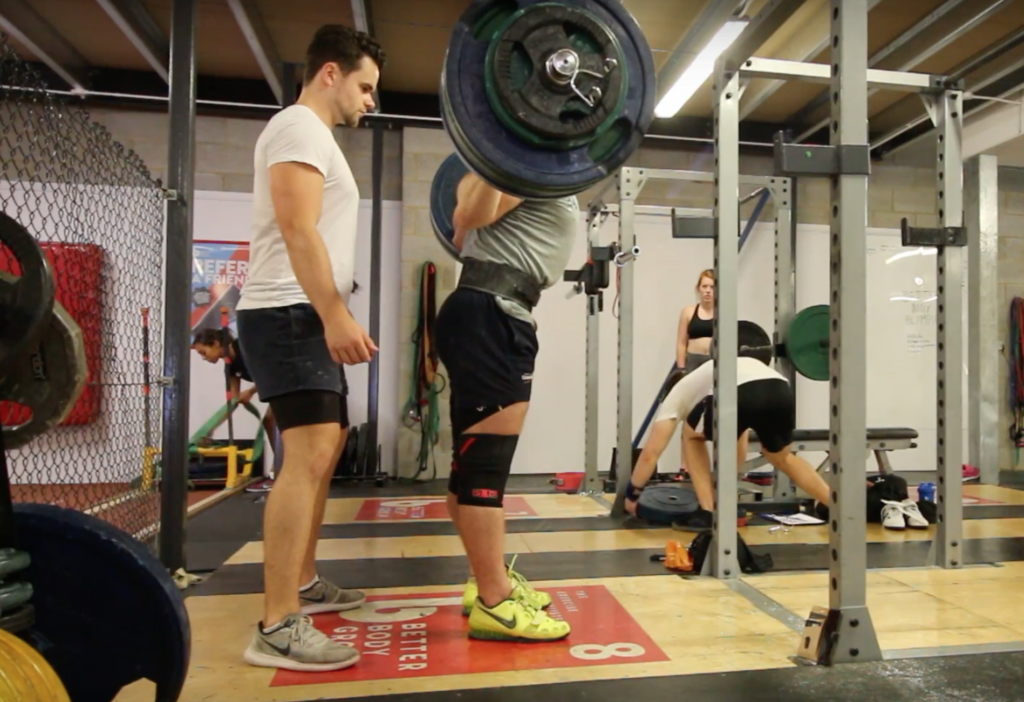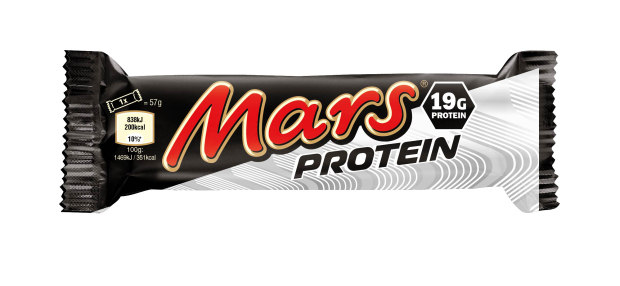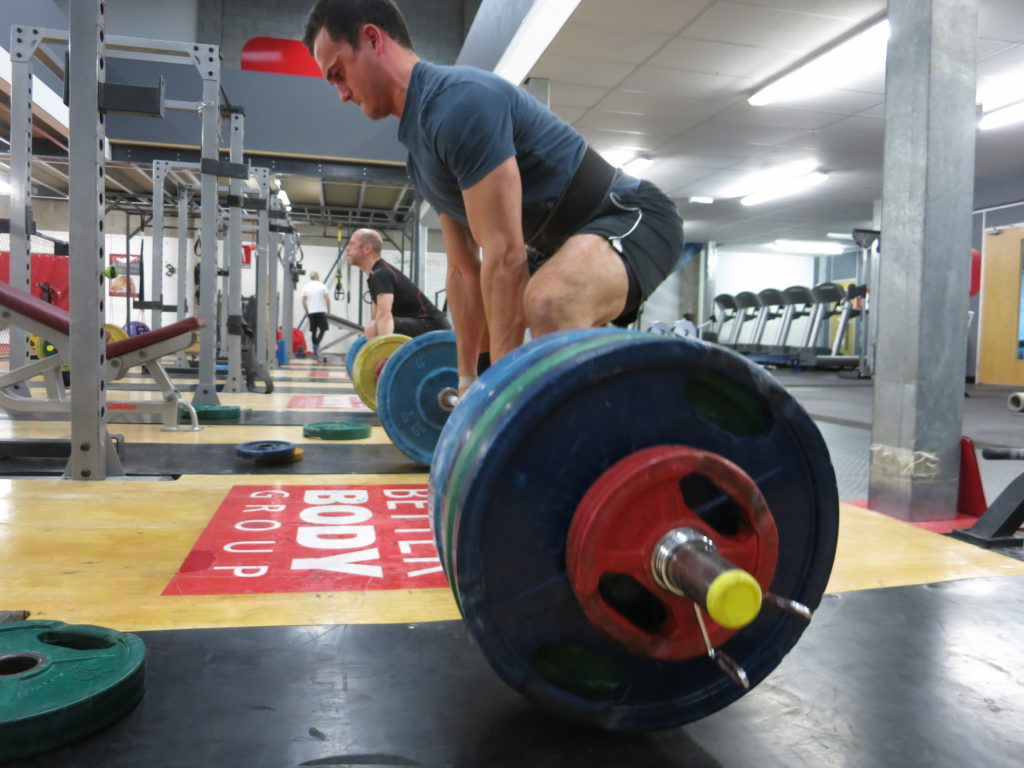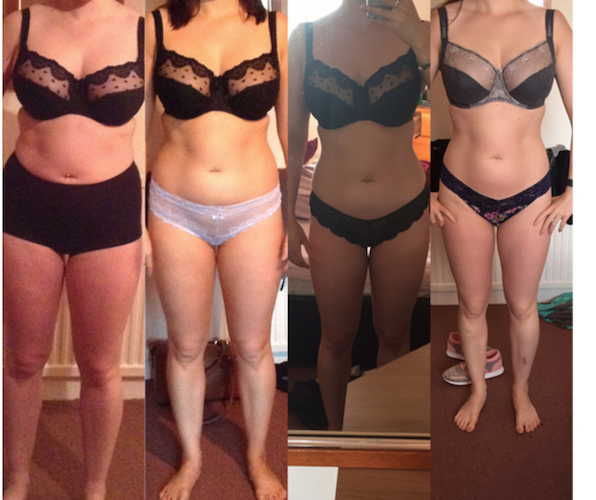The Ultimate Guide To Avoiding Christmas Weight Gain
NOTE FROM JB: I just want to say that this is not your usual kind of “How to Avoid Fat Gain During The Christmas Period” guide.
You know the ones. The ones that tell you a bunch of useless crap like:
“Drink more water”
“Eat off a smaller plate”
Or my particular favourite:
“Hit the sales because the extra walking will help you burn fat”
What a load of drivel.
Instead, I want to give you actionable tips to get you into January looking and feeling buff whilst still eating and drinking the stuff you like.
Without further ado, let’s kick things off.
First, some Good news: You’re unlikely to actually gain that much weight over christmas.
A ton of people seem to have this idea that they’ll be gaining at least a stone of flab in the month or so leading up to and over Christmas.
Yes, I know drinking an entire case of beer or eating a pyramid of Ferrero Rocher topped with a Terry’s chocolate orange makes you feel fat.
But it turns out the research suggests the kind of weight gain we THINK we have isn’t actually the case.
In fact, the weight gain seen over the Crimbo period is actually anywhere between 0.5kg-2.3kg.
Not ideal by any means, but not as bad as most people think.
But along with the good news, I’ve also got some bad news:
Research says that Christmas fat is bloody hard to shift.
This kind of fat is the worst.
It forms the “where the f*&k did that come from?!” kind of fat.
The kind where it doesn’t appear overnight (rarely does this happen in any case).
Instead it’s the kind where it creeps on and you wake up 3 years down the line, wondering why you’re a stone heavier.
^ THIS is the reason why you should be attempting to avoid Christmas weight gain. Or at least be aware of it and know how to shift it.
To do so, we need to have a plan.
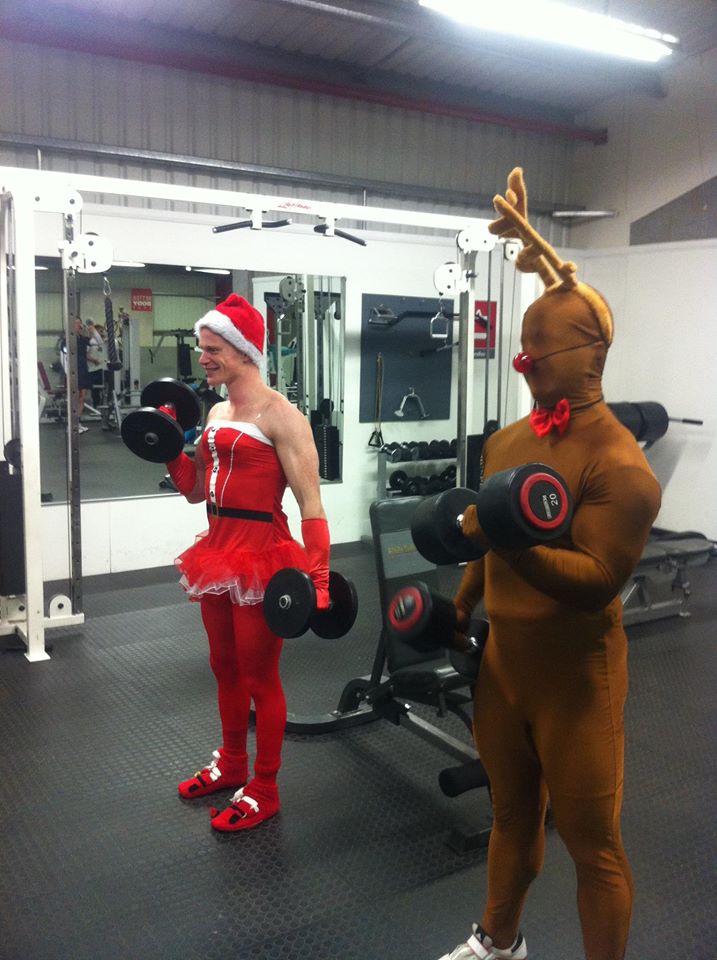
Mrs Clause and Rudolph/my buddy Joe and I know how to stay jacked AF over the Xmas period.
Step 1. Relax
Christmas is a time to enjoy yourself and do so with friends and family.
So don’t worry about the fact that you’ll likely be drinking and eating more.
Life’s too short to feel guilty about enjoying yourself.
The fact of the matter is that in doing so you’ll likely be consuming more calories and this will potentially contribute towards weight gain.
In the following steps I’ll show you how to minimise, or completely eliminate this.
Step 2. Be mindful
I used to scoff at “being mindful”, thinking it was a load of BS, and reserved only for the kind of people that eat nut roast, hug trees and burn incense.
How wrong I was.
When practiced correctly, being mindful is actually incredibly powerful.
Before eating or drinking something, think to yourself:
“Do I actually like (or want) this?”
I know for me personally, and a ton of my clients who use this strategy it works well, and quite often the answer is no.
Obviously it’s individual about what you do and don’t actually like all that much and just have “because it’s there”, but these are the usual culprits:
- Chocolate and sweets that only ever come out at this time of year like Matchsticks, After Eights.
- Snacks you’d pick at out of a bowl like crisps, Twiglets, peanuts.
- Cold savoury foods like cocktail sausages, sausage rolls, vol-au-vents.
Instead of mindless eating and drinking, hold out for the stuff that you truly like and you’ll enjoy it all the more, whilst also stopping you from eating 1000s of calories in the process. Which leads us nicely on to…
Step 3. Eat fewer calories
Despite the foods and drinks available over Christmas being considered mostly as “junk”, calories are still the main factor in determining weight loss or weight gain. No matter what foods you eat, being in a calorie deficit will mean weight/fat loss.
And yes, before you ask, you CAN still lose weight over Christmas if that is your goal!
All you need is a little know how.
A good starting point for calorie intake for weight loss is:
Bodyweight (lbs) x 10-12 (sedentary x 10, active x 12)
Using me as an example, I’m 180lbs and active so:
180 x 12 = 2160 calories
For weight maintenance:
Bodyweight (lbs) x 14-16 (sedentary x 14, active x 16)
Anything over will potentially cause weight gain.
I should also note here that you don’t have to be in a calorie deficit every day to lose fat. I sometimes like to work out what a calorie deficit would be over the course of a week in my clients’ programs so they get extra calories on certain days and still lose fat.
For example:
2160 calories on Monday – Sunday equals 15120 calories
But you could also do:
1960 calories on Monday – Thursday & Sunday AND 2660 calories on Friday & Saturday to also equal 15120 calories.
The second option would yield the same result as the first, whilst offering a little more flexibility.
If you have the inclination to do so, you can track the calories that you have at a Christmas party or event on MyFitnessPal.
Although if you use MFP on Christmas Day I will personally come round to your house and tell you to get a life.
Calorie counting not your bag though? No problem.
It’s not always necessary, and the idea that you have to be chained to an app for the rest of your life to ensure you’re eating less is ridiculous.
Instead you can try any of these strategies to consume fewer calories:
1. Fasting
Got an heavy, likely to be messy evening event and still aim to be losing fat?
Just fast up until the event. Have a few teas/coffees to keep you going.
Then beforehand have a low calorie, vegetable or fruit and high protein snack (like 0% fat Greek yoghurt with some blueberries or a chicken breast w/salad & lemon juice).
This small meal is to stop you from going full hog on the food (you’ll be quite hungry) and to not let the booze hit you too hard.
Then all that’s left is to go enjoy yourself!
2. Create a calorie “sink”
Very similar to the above in that it reduces calories for a period of the day, but for those who don’t like the idea of completely fasting.
If you’re partying in the evening, plan two meals, breakfast and lunch to be high protein, low calorie and contain fruit and/or vegetables.
To give you an idea you could have:
Breakfast
1 scoop of vanilla whey protein
100g mixed frozen berries
250ml unsweetened almond milk
(~186 calories)
1. Whack it all in your blender, whizz it all together and drink.
Lunch
150g fillet steak
Handful each of chopped mushrooms, red pepper, red onion, aubergine and courgette.
(~300 calories)
1. Season your steak and vegetables with salt and pepper. Cook your steak to your liking on a dry griddle pan.
2. Meanwhile, put all the veg on a large tray and put under a hot grill for 5-10 minutes, mixing frequently until nicely charred.
After having these two tasty and filling meals you’ve still got a ton of calories left to enjoy your evening.
3. Make things hard for yourself
This one only works if you’re entertaining at home, but is still a worthy strategy.
The more difficult you make it to eat, the less likely you are to consume more calories. I’m talking about things like:
- Not serving food at the table, instead keep dishes in the kitchen so you have to get up to get more.
- Prepare a limited amount of food in terms of quantity. Work out how much food you need per person and don’t make more!
- Prepare a limited amount of food in terms of variety. Do you really need six types of cheese after dessert? How about needing three different types of puddings? Limit to what you really want and need and you’ll by default eat much less.
Step 4. Have some perspective
Eat and drink what you like on Christmas day and New Year’s Eve.
It’s just two days out of 365, unlikely to make negative impact on your physique, so enjoy yourself.
Problems however occur when it extends to two or three out of control events every week from November into January!
If you’re too strict with yourself at this time of year, you’re much more likely to break and give in to cravings, leading to massive overeating.
This is bad enough during “normal” times of year, but even worse at Christmas when there is a ton of food and drink available.
In light of this, be flexible with your diet and understand that there’s no such thing as dietary ‘failure’.
Instead work out how to incorporate your favourite foods and drinks into your diet sensibly (even if that does mean overeating them occasionally) and not think of things in black and white or success and failure.
Evidence suggests that those who master these two things get far better results AND can maintain them long term.
ABOUT THE AUTHOR
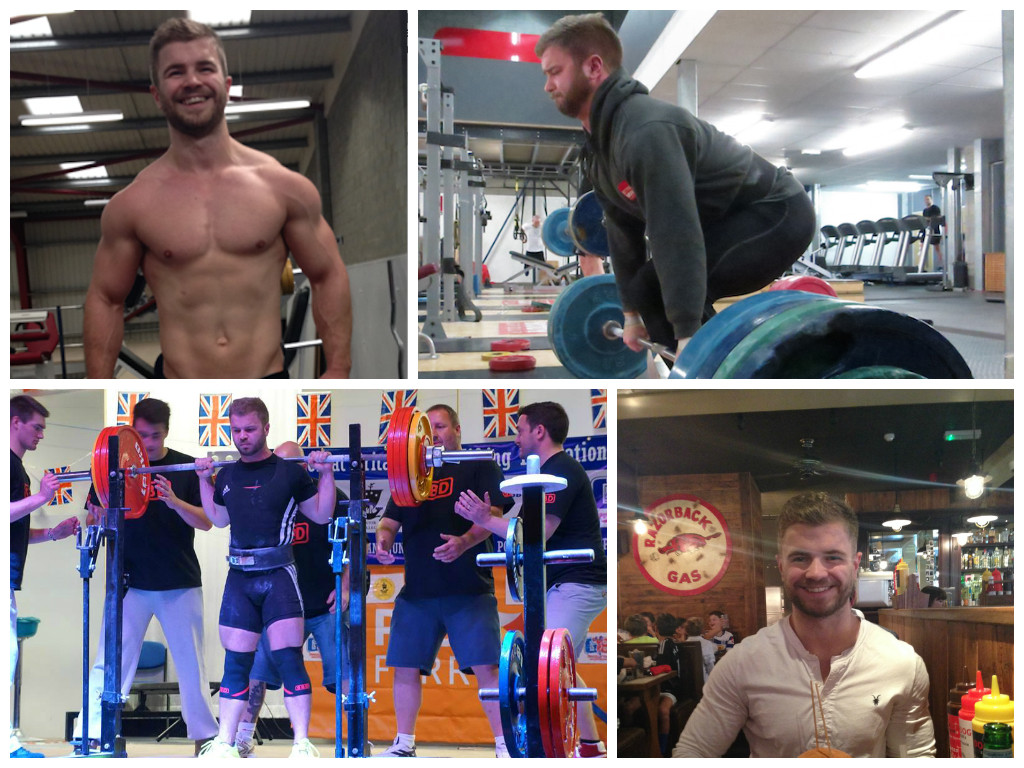 James Blanchard (JB) is a personal trainer and nutrition consultant, working with clients both online and on an in person basis from the Better Body Group in Sevenoaks, UK.
James Blanchard (JB) is a personal trainer and nutrition consultant, working with clients both online and on an in person basis from the Better Body Group in Sevenoaks, UK.
He specialises in getting hard working, busy people lean, strong and confident whilst still enabling them to be social and enjoying life’s pleasures. Ya know, like beer, wine, pizza and stuff.
Taking a scientific and evidence based approach, he designs his clients’ training and nutrition programs in the most effective, time efficient and easy to stick to way possible.
He has a passion for picking heavy stuff up and putting it down again. He channels this through competing in powerlifting, where he currently holding a regional record in the squat. He’s also tried his hand at various other sports, including rugby, bobskeleton and athletics.
To get your hands on some of JB’s best work for free, you can join over a 1000 others and get his Get Shredded Toolkit, containing everything you need to get lean: “5 Rules to Get Shredded eBook”, a whole body training program, a completely personalised diet and comprehensive how-to guide here.

